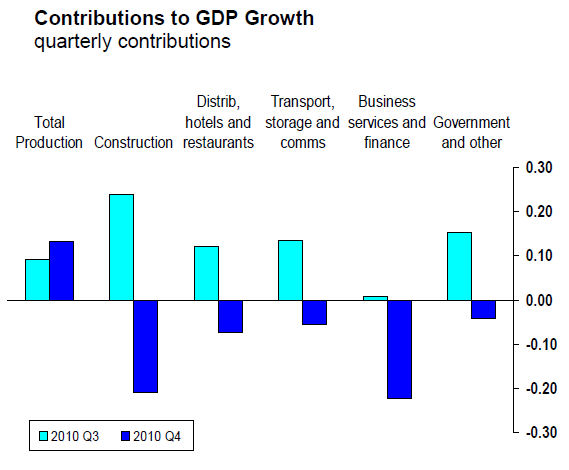A step in the wrong direction
Oh dear. The Office of National Statistics (ONS) has released its preliminary GDP figures for the fourth quarter of last year and they reveal a contraction of 0.5 percent. This is in stark contrast to the four quarters of GDP growth, including 0.7 percent in the preceding quarter.
This 1.2 percent swing was significantly affected by the December weather - when it was colder than usual and snowed a bit. This contributed to a 0.5 decrease in total services output, with hotels, restaurants, transport and computer services all big contributors to the fall.
Construction also took a kicking, with a 3.3 percent decline compared to a 3.9 percent rise the previous quarter. Only manufacturing bucked the trend.
In its introductory statement, the ONS was keen to stress the impact of the weather. "The change in GDP in Q4 was clearly affected by the extremely bad weather in December last year," it said.
"The disruption caused by the bad weather in December is likely to have contributed to most of the 0.5 per cent decline, that is, if there had been no disruption, GDP would be showing a flattish picture rather than declining by 0.5 per cent. We should emphasise that this assessment of the effect of the bad weather is the best we can make it at this stage, but is still inevitably uncertain."
But even if we concede that the real figure is more like 0 percent growth, this still marks a reversal of growth trends at a time when public sector austerity measures are only just starting to make their influence felt in the broader economy. There's therefore very little to suggest the economy will immediately rebound in this quarter.
The official definition of a recession is two consecutive quarters of shrinking GDP. Unless the ONS revises this figure upwards by at least 0.5 percent or we manage to return to growth, we'll be back in recession a year after we emerged from the previous one. This phenomenon is popularly referred to as ‘double-dip'.










